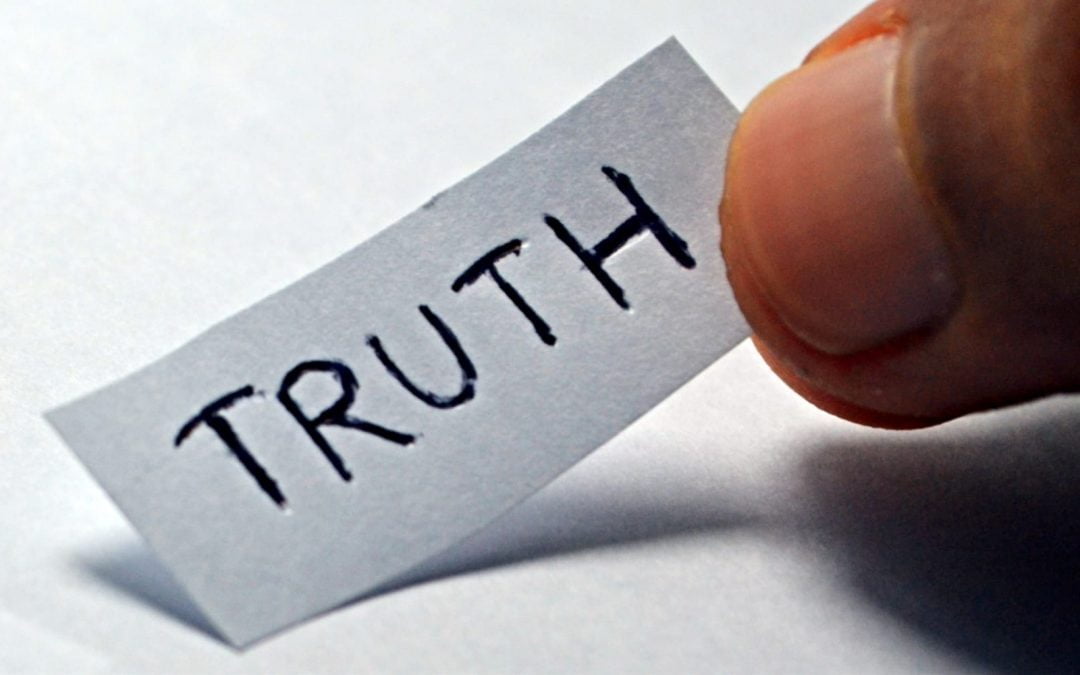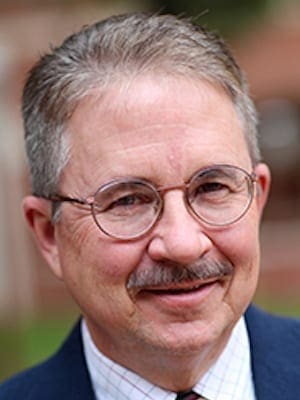Prophecy means many different things to different people.
Here I mean by “prophet” someone who speaks God’s truth to God’s people and to people with power.
Often, this includes making people uncomfortable by pointing out their sins – personal and social.
The Bible describes certain people as called by God to be prophets and to prophecy.
From the earliest extrabiblical writings, we know there were prophets among late first century and early second century Christians, especially in the Middle East.
Many people have come to equate “prophecy” with foretelling the future. Most biblical scholars say that in the Bible most prophecy was “forthtelling” – speaking truth to God’s people and to rulers.
The New Testament mentions a “gift of prophecy,” and in 1 Corinthians the Apostle Paul expresses his wish that all of his readers in Corinth would seek the gift of prophecy or at least that they would all prophecy.
Some biblical scholars interpret that as hyperbole because in the same context Paul asks whether there is any one gift of the Spirit given to all.
I think the best way to interpret this apparent paradox is to believe that Paul had in mind two distinct types of “prophecy.”
On the one hand, it was a special gift given to some to speak the word of the Lord to the congregation – probably addressing certain specific issues and problems.
On the other hand, it was a general gift offered to all believers to speak God’s truth to God’s people and to people with power.
Today, in the 21st century, many Christians in the world claim to have a special gift of prophecy.
This is especially common among Pentecostals, charismatics and so-called “Third Wave” Christians. (All can be lumped together as “Renewalists.”)
Protestants especially have believed in the priesthood of every believer and that has been interpreted differently by different Protestants.
At the most basic level, it simply means freedom and ability to go directly to God in petitionary prayer for oneself and for others – without any needed human intermediary.
We need to develop a parallel concept of the prophethood of every believer, in which “prophecy” simply means speaking truth to God’s people and to all people, especially people with power, without regard to whether it is comfortable truth or uncomfortable truth.
By no means am I denying a special gift of prophecy, such as mentioned by Paul in 1 Corinthians, but I admit I don’t know exactly what that is.
I have seen and heard it exercised on rare occasions, but I don’t claim to have a systematic theological account of it that answers all questions.
I suspect that true prophecy challenges the status quo and calls for God’s will to be done in specific circumstances.
It is usually discomforting, although it can also be comforting. I believe it is always discomforting in a context of complacency or outright sin or injustice.
Some years ago, after my transition from Pentecostal to Baptist, I sat in a “solemn assembly” church service, where the church leaders gathered on the “platform” and asked the congregation to pray and wait on God for God’s will for the church in a time of crisis.
After a long silence, a woman relatively new to the church spoke out with a “message” that, in my opinion, was exactly what God wanted that congregation to hear at that moment.
It did not sound at all like a mere opinion; it sounded like a biblical event of prophecy.
I believe Martin Luther King Jr. was a prophet without a special “gift” of prophecy. Others I could name are Aleksandr Solzhenitsyn, Dorothy Day, David du Plessis, Foy Valentine, Mother Theresa, Walter Rauschenbusch, William Stringfellow and, yes, Stanley Hauerwas.
Obviously, I do not mean that everything said by these people or any other prophets were or are right about everything.
What I mean is this: They had/have the courage to speak out to Christians and people with power in ways that troubled the status quo and pointed toward God’s will that would require sacrifice.
Of course, I do not expect everyone to agree with my list. And I expect many people will want to add to it. I am not inviting such responses; I am only expressing my own, personal opinion.
My opinion here, today, is not so much who have been prophets (without a special charismatic “gift” of prophecy) but that all and every one of God’s people are called to speak truth even when it makes others uncomfortable – if it is God’s truth.
How does one know if a message is God’s truth?
- Of course, it has to be consistent with biblical revelation, continuous in some way with biblical prophecy (as forthtelling).
- It has to bring attention to that truth rather than to the prophet himself or herself.
- Finally, it must offer hope with obedience.
The New Testament gives clear instruction that such prophecies should be tested by the people of the congregation especially noted for their spiritual depth, wisdom and ability to hear God’s voice.
But it is possible that a congregation or other community (including nation-state) is so deaf to God’s voice that a prophet among them is only a “voice crying in the wilderness” whose words are rejected because they trouble the status quo and call for sacrifice.
Here is my opinion offered for response: Every Christian church ought to encourage every Christian to speak God’s Word, as he or she hears it, and give him or her a platform (metaphorically speaking) for expressing that message.
Every mature Christian ought to speak out in some forum, in some form, about injustices among the church, secular rulers or both.
When the prophetic “forthtelling” message is given to the congregation, the elders (whether called that or not) ought to discern prayerfully whether it is from God.
When it is given to the secular rulers, only the priesthood of the believer prevents the prophet’s congregation from interfering even if they disagree with the message.
Jürgen Moltmann is, I believe, a prophet without a supernatural gift of prophecy. In his book, “Ethics of Hope,” he calls for Christians to act on behalf of the downtrodden of the earth and on behalf of the earth itself and for generations yet to come whose “shalom,” or well-being, we are endangering with debt and devastation (of the environment).
Clearly, one of his “models” is the late German evangelist and theologian Christoph Blumhardt, who was the only Protestant state church minister to refuse to support the German war policy in 1914.
Editor’s note: A version of this article first appeared on Olson’s blog. It is used with permission.
Roger Olson is the Foy Valentine professor of Christian theology and ethics at George W. Truett Theological Seminary in Waco, Texas. He is the author of numerous books, including “Counterfeit Christianity” and “The Story of Christian Theology.”


